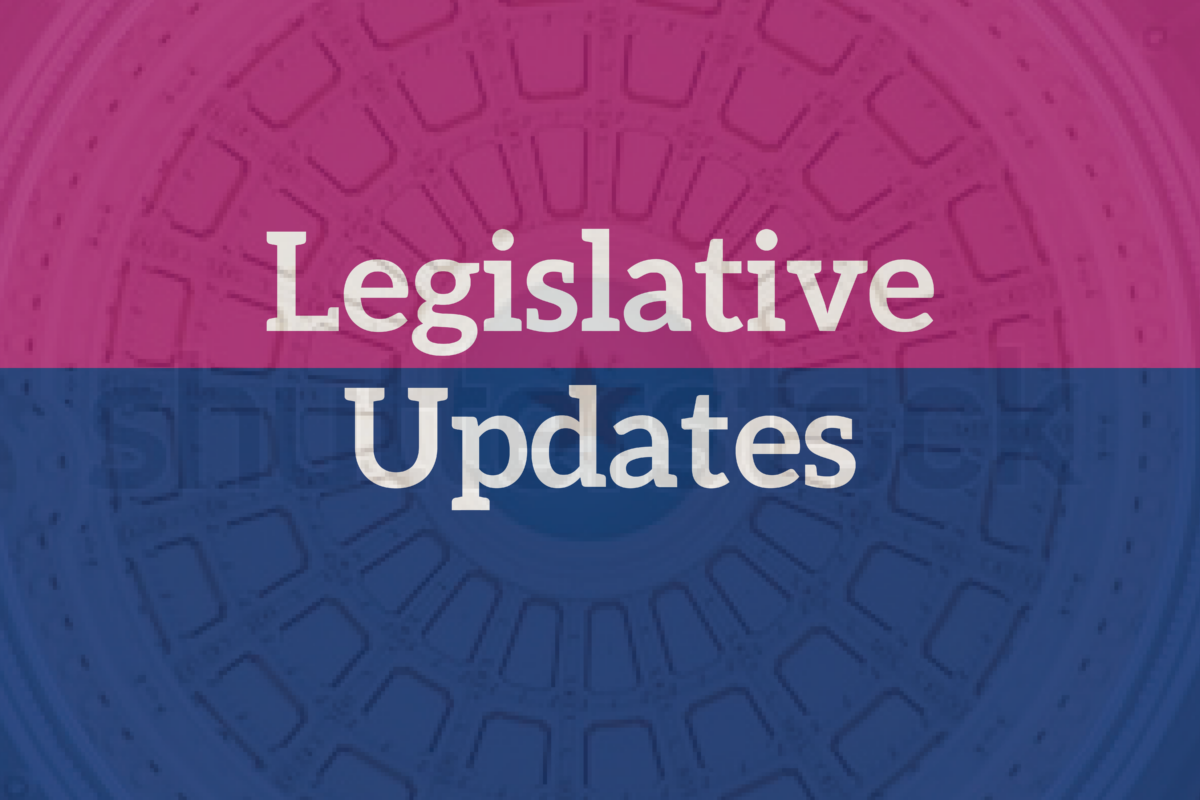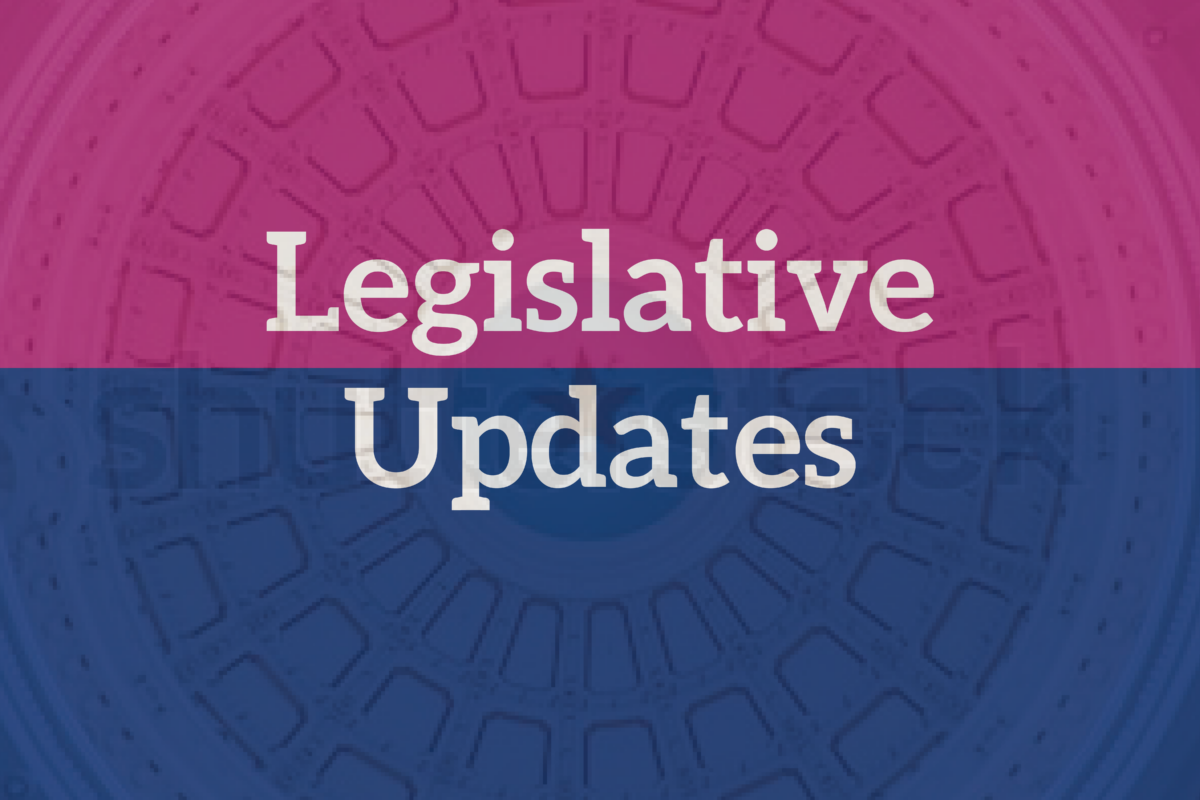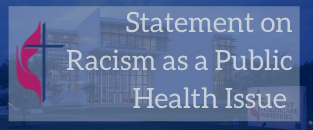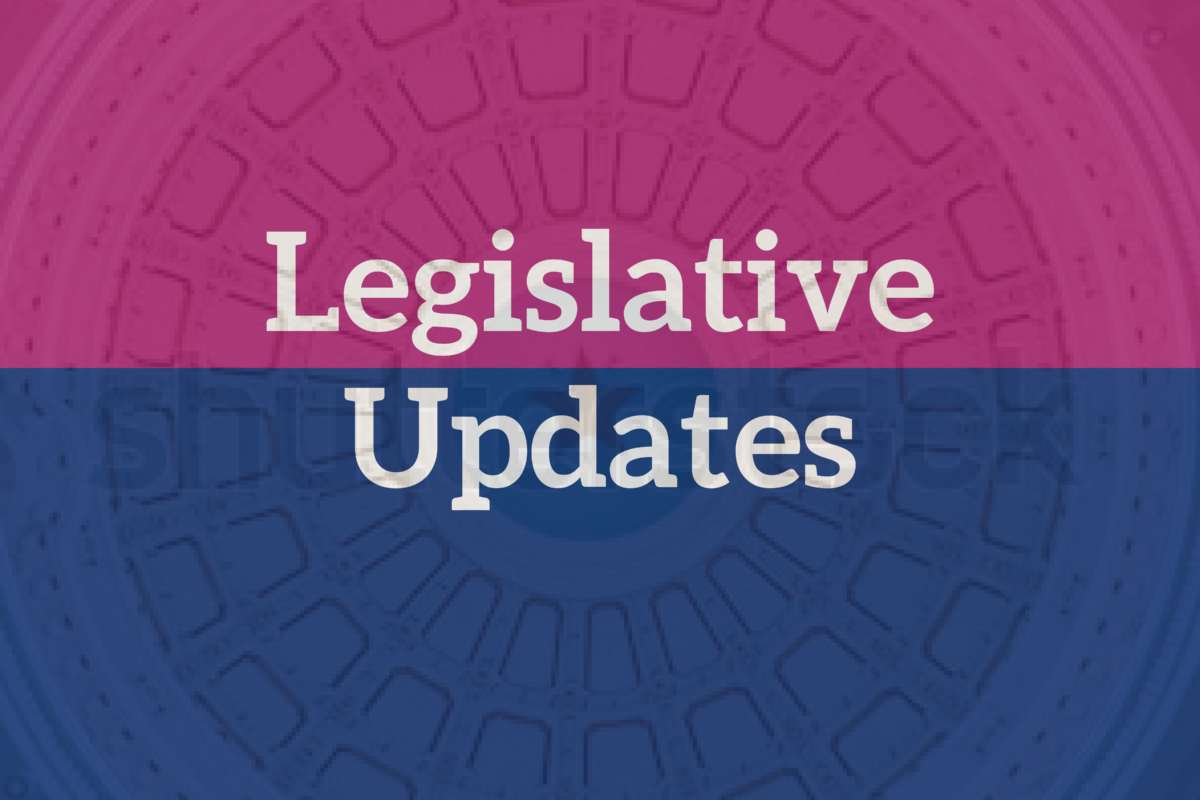Legislative Update, January 19
- State Urging Faster Distribution of COVID-19 Vaccines
- Texas "Vaccination Hubs" Created to Distribute COVID-19 Vaccines
- The Texas 87th Legislative Session Reconvenes on January 12th
- Bills Filed Would Create State Health Literacy Plan
- Trauma Informed Care Training and Education Bills Filed
- Pandemic Draws Attention to Vaccines
- State Comptroller Releases Biennial Revenue Estimate
___________________________________________________________________________________________
State Updates
State Urging Faster Distribution of COVID-19 Vaccines
Texas hospitals and healthcare providers are being urged by the state to administer ongoing shipments of the COVID-19 vaccines more promptly to eligible community residents. The vaccine distribution for Week 5 will provide vaccines to 234 healthcare providers across the state.
Individuals who meet the criteria for vaccine eligibility can refer to the Vaccine Provider Location Map for access to the vaccine. The Pharmacy Partnership for Long-Term Care Program, a program that began to administer vaccines to staff and residents at 770 long-term care facilities, will be receiving 121,875 doses. Healthcare providers across Texas can also expect to receive 500,000 doses to be administered to individuals who are scheduled to receive their second vaccine dose. The Texas Hospital Association is currently in the process of producing digital messages for its hospital members to communicate vaccine procedures and availability to the public.
Vaccine allocations for Week 6 will be intended for healthcare providers who have not yet received vaccines or are located in rural communities. Current data show that there are 13,397 COVID-19 Texas hospitalizations, with only 8,687 hospitals beds and 614 intensive care unit beds available in Texas. Additional case counts and hospital data can be found here. Since vaccine supply is limited, DSHS encourages healthcare providers to administer the vaccines promptly to priority populations and report those doses to the state’s immunization registry, ImmTrac2.
Texas “Vaccination Hubs” Created to Distribute COVID-19 Vaccines
Roughly 158,825 COVID-19 vaccines will be received by large “vaccination hubs” this week across Texas. These “vaccination hubs” are known for their ability to vaccinate up to 100,000 individuals, which alleviates the strain from rising positive COVID-19 cases. A list of the identified 28 providers categorized as a hub can be found here.
These hubs will also be responsible to continue vaccine administrations to group 1A, which includes healthcare workers, and members in nursing homes or long-term care facilities. As of late December, state officials encouraged hospitals to begin vaccine distribution to members in group 1B, which includes individuals who are 65 and older, and people with an increased risk of infection from existing medical conditions.
The Texas Department of State Health Services has collaborated with the Centers for Disease Control and Prevention to deliver 38,300 doses to 104 providers statewide. This brings the total to 222 counties expected to continue vaccine distribution in Texas. As of Jan. 7th, at least 475,000 Texans have received their first vaccine dose and 6,500 Texans have received the required two doses. State officials encourage the practice of COVID-19 safety precautions as vaccine supply is yet to meet demand.
The Texas 87th Legislative Session Reconvenes on January 12th
At 12:00 noon on Tuesday, January 12th the Texas legislature officially gaveled in the 87th Legislative Session in Austin for the biennial, 140-day legislative session. Both the House and Senate have developed safety protocols in response to the COVID-19 pandemic and last week’s protest at the US Capitol.
Individuals planning to enter the Capitol were expected to receive a mandatory COVID-19 test as advised by the Department of Public Safety. Lawmakers were directed to invite fewer guests than in past sessions and House members were required to wear face masks on the House floor as forms of added safety measures. The legislative session kicked off with the confirmed election of Rep. Dade Phelan (R-Beaumont) as the new House Speaker. In the Senate, Senator Brian Birdwell (R-Granbury) was also unanimously elected president pro tempore of the Senate. This position is usually held by senators who have the longest tenure. Some items that can be expected to be on the state’s priority discussion list include redistricting, crafting a two-year state budget and measures to tackle the pandemic. To date, 1,423 bills have been filed by legislators. For access to the 87th legislative session livestream, click here.
Bills Filed Would Create State Health Literacy Plan
Health literacy continues to be an important priority for Methodist Healthcare Ministries this legislative session. Ensuring that all individuals have the capacity to obtain, communicate, process and understand basic health information to make appropriate health decisions for themselves empowers patients to advocate for good health.
In the Senate, Senate Bill 124 has been filed by Senator Nathan Johnson (D-Dallas). As drafted, SB 124 would add health literacy to the statewide health literacy plan and establish an advisory committee composed of representatives of relevant stakeholders, including physicians, hospitals, and nurses. The committee would develop a long-term plan focusing on identifying the primary factors contributing to low health literacy in the state, examine the methodologies of healthcare providers, the effectiveness of using quality measures in state health programs, and examine the impact that improved health literacy could have on patient safety. House Bill 578, a companion bill to SB 124, has been filed in the House by State Representative John Turner, (D-Dallas).
Trauma Informed Care Training and Education Bills Filed
This session, Methodist Healthcare Ministries will be supporting a number of bills that aim to establish Trauma Informed Care training and education requirements for public school curriculum, judges and attorneys that practice family law, and foster parents.
House Bill 564 by Rep. Ray Lopez (D-San Antonio) would require foster parents, adoptive parents, and kinship care-givers to complete a trauma informed care training course. Rep. Lopez has also filed House Bill 565 which would place training requirements on certain judges and attorneys that represent the state in a suit seeking the termination of a parent-child relationship or appointment of a conservator. Their training will be focused on the effects of trauma on children. Additionally, House Bill 566 by Rep. Lopez further outlines the requirements of trauma informed care training for certain attorneys. Any attorney who is acting as attorney ad litem for a child in a child protection case will only be qualified to represent the child after completing three hours of continuing legal education relating to the representation of a child each year.
In the Senate, Senate Bill 123 by Senator Nathan Johnson would require the development of public-school curriculum that is focused on the inclusion of social and emotional skills. This would include the development of student’s character traits, such as integrity, respect, reliability, and more. The bill would apply to students K-12 and aims to create a culture of respect and empathy for youth in their formative years.
Pandemic Draws Attention to Vaccines
The focus on the COVID-19 pandemic and ensuing search for a life-saving vaccine has directed our attention to the importance of all vaccines and the historic role they have played in eliminating fatal diseases over our lifetime.
Lawmakers have filed a number of immunization bills for the upcoming 87th Legislative Session, including the need to expand our current registry system as well as require all students to be immunized against meningococcal meningitis.
House Bill 325 by Rep. Donna Howard (D-Austin) would allow for the development of a state immunization registry for the purposes of public health research. By developing a robust data infrastructure, the state will be better equipped to manage public health emergencies in the future. Immunizing students against meningococcal meningitis is the goal of House Bills 516, 591, and Senate Bill 138, all relating to the requirement of Texas students to be fully immunized against meningococcal meningitis and provide these records to the school district.
State Comptroller Releases Biennial Revenue Estimate
On January 11th, State Comptroller Glenn Hegar gave the biennial revenue estimate for the 2022-23 state budget. Comptroller Hegar shared that Texas find itself in unprecedented circumstances this year in developing state budget estimates. Before the pandemic, the state was maintaining $4.8 billion in general funds and state tax revenue was running ahead as well, poising Texas for another surplus year.
The COVID-19 pandemic has taken an enormous economic toll on the state. Travel, hospitality, and dining services that make up a large portion of the state’s tax revenue have taken a major hit. Texas employment peaked in February and rebounded slightly in May, but the state is currently maintaining a loss of more than 500,000 jobs and claims for unemployment benefits remain high. Despite the current economic climate, Hagar is forecasting economic growth in the next biennium as the state continues to slowly moves toward recovery, fueled by the recent approval and distribution of the Pfizer and Moderna vaccines.
Comptroller Hegar estimated that the state will maintain a balance of $112.53 billion in total revenue for general purpose spending, after the $5.83 billion in revenue reserved for transfer to the Economic Stabilization and State Highway Fund, as well as the transfer of $270 million to the Texas Tomorrow Fund. To view the slides used during the press conference click here.
Federal Updates
Second Round of Stimulus Checks on Their Way
The Treasury Department and IRS are expected to distribute roughly eight million stimulus payments in the form of either an Economic Impact Payment via prepaid debit card, direct deposit or check by mail. Millions of Americans can expect to receive their second round of payments of up to $600 through January 15.
People who qualify for a second round of stimulus payments in the amount of $600 include adults who earn no more than $75,000 and each child under the age of 17 filed as dependents. Individuals can expect to receive prepaid debit cards or checks in the mail if the Treasury does not have their banking information on file. The Treasury also noted that individuals will be able to get replacement cards without fees, if needed.
Supplemental unemployment payments in the amount of $300 will also be distributed to qualifying individuals for up to 11 weeks. Payments will be sent in white envelopes displaying the Treasury Department’s seal in response to confusion experienced by taxpayers in the first round who thought the payments were a possible scam.
Although the president and U.S. House encouraged the passage of a $2,000 stimulus package, the U.S. Senate recently voted against it. With the Senate runoff elections confirmed in Georgia, resulting in an even split among both parties in the Senate, the passage of another round of stimulus checks in the amount of $2,000 or $1,400 will likely revisited by the new incoming administration
COVID-19 NEWS
Scientists Debate Administering Half Doses of COVID-19 Vaccine
With allocations of both COVID-19 vaccines underway, healthcare workers and scientists believe the vaccines are not being made available fast enough. As vaccine distribution seems to have slowed down amid rising COVID-19 cases, scientists are beginning to consider other strategic tactics to fight the spread of the virus as fast as possible.
In December, federal health officials claimed that 20 million people would receive their first vaccine by the end of 2020. Yet within the first days of January 2021, only 4.2 million individuals have received their doses. In effort to make the most of the current vaccine supply, a scientific adviser from Operation Warp Speed has suggested that the Moderna vaccine be administered as half doses to Americans. Given that the COVID-19 vaccines provide protection against the virus after the first dose, by only administering half a dose, twice the number of Americans will be protected within a shorter period.
Scientists opposed to this position argue that the vaccines were created to provide maximum protection against the virus from two full doses, and there is no guarantee that the first half dose would provide adequate protection after the three to four week waiting period for a booster dose. As the spread of the new COVID-19 variant quickens, and the current vaccine rollout steadily slows, scientists are considering several options that will increase vaccine efforts.
For more information on health care research, policy or advocacy, please contact Chris Yanas at cyanas@mhm.org.





 during her treatment and provide physical and emotional support as she was at home. For that, I am very grateful.
during her treatment and provide physical and emotional support as she was at home. For that, I am very grateful. 




 I lost my grandmother in September 1995 to Alzheimer’s Disease. My mother predicted back then that she would probably also inherit the disease. Many decades later, she sought the advice of a neurologist at the first signs of the disease. Initially, symptoms were small things like forgetting why you went to the grocery store or not finding your purse for weeks. Then it turned into constantly repeating the same things, being a danger to herself and others in the kitchen, forgetting how to swallow or how to walk and, ultimately, being unable to recognize us as her family. My mother was taking all the known medications for Alzheimer’s Disease.
I lost my grandmother in September 1995 to Alzheimer’s Disease. My mother predicted back then that she would probably also inherit the disease. Many decades later, she sought the advice of a neurologist at the first signs of the disease. Initially, symptoms were small things like forgetting why you went to the grocery store or not finding your purse for weeks. Then it turned into constantly repeating the same things, being a danger to herself and others in the kitchen, forgetting how to swallow or how to walk and, ultimately, being unable to recognize us as her family. My mother was taking all the known medications for Alzheimer’s Disease.

 Can we count you in?
Can we count you in?


 Methodist Healthcare Ministries of South Texas, Inc. provided two San Antonio youths with a unique opportunity to gain real-world work experience from its experts during this year’s
Methodist Healthcare Ministries of South Texas, Inc. provided two San Antonio youths with a unique opportunity to gain real-world work experience from its experts during this year’s  Davis is grateful for the opportunity
Davis is grateful for the opportunity  Alex Bryant, also a Methodist Healthcare Ministries intern this summer, said he seized the opportunity to participate in the program because he wanted to experience what it’s like to work in the field of information technology and cybersecurity, which is his passion.
Alex Bryant, also a Methodist Healthcare Ministries intern this summer, said he seized the opportunity to participate in the program because he wanted to experience what it’s like to work in the field of information technology and cybersecurity, which is his passion.
